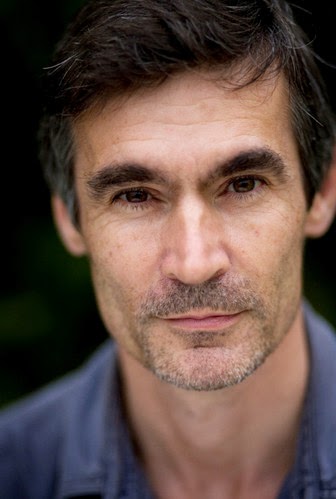Into this world, as the outcome of a sort-of rape of a young village woman in the icy darkness of the severe winter of 1739, is born James Dyer. He is a remarkable child: tall, handsome, confident, blue-eyed (when he should not be), but indubitably strange. Though he understands perfectly, he does not speak until he is ten years old. He seems impervious to pain. His first words come after he has fallen from a tree, shattering his leg. The leg is set and he recovers remarkably quickly, never complaining even of discomfort. At the same time he is oddly detached, uninterested in stories and plays, strangely unaffected when most of his family are carried off by smallpox. His interests are more what we would call "scientific"; his favorite object is an orrery, a mechanical model of the solar system, which accompanies him throughout his life, and his closest interest that of human anatomy. You might even say he rather resembles something which today we might call "autistic".
It transpires that James is indeed impervious to pain. This is spotted first by a travelling showman, actually the one who set his leg and - it is hinted - may be his father, and is exploited by him up and down the land in a stage show to sell quack remedies. The second to see the truth is a scientific gentleman, member of the Royal Academy no less, with an interest in freaks of nature, who sees through the showman's act and abducts the boy to safety in his vast country house (a weird disorientating prototype of the Versailles Palace in Pure) to become an object of study, along with a pair of conjoined twins and (perhaps) a mermaid. James lives through these experiences, which involve lots of needles being pushed through his hands, a tooth extraction, and the ripping out of fingernails (all for the sake of a sale or scientific investigation - the two come to seem oddly equivalent) with a curious detachment. He is only spurred to act when he witnesses a gruesomely botched public operation to separate the twins, an event which persuades him it is time to move on.
There follows the story of James' remarkable success, lived out through a succession of picaresque adventures fitting for a Georgian novel. A stint in the navy and then a spell in a medical practice in fashionable Bath cement his reputation as a surgeon among the very best in the land. This, of course, in a pre-anaesthetic, pre-antibiotic world, is measured largely in terms of the sheer speed he can operate and comparatively high survival rates. His greatest assets in this work seem to be sheer lack of empathy, a cold efficiency and aloofness, which are tolerated because he is undoubtedly good. The same qualities however, lead him into an affair with his partner's wife (about whom however he cares extremely little) and into social disrepute.
The way out - and the turning point of James Dyer's life - comes in the form of a bizarre competition. As an example to her people, Catherine the Great of Russia wishes to be inoculated against smallpox - a new and hazardous procedure - by a British physician. The first to arrive in St Petersburg, in accordance with some strict rules for the race, which must pass via Paris and Berlin, will get the well-remunerated job. It is in the course of the journey, which does not go according to plan, that occurs the encounter which transforms Dyer's life. The consequence, the rediscovery of pain, past present and future, has ramifications which go well beyond, well, the feeling of pain, and say much about what it is to be an entire human.
Perhaps I have said too much about the story itself, which is, in any case, a rattlingly good one, and one which, as mentioned, has much in common with those sprawling eighteenth century novels of unlikely adventure and abrupt reverses of fortune.
 |
| Andrew Miller |
There is something else to be said about Ingenious Pain, not a small point at all. Its evocative power is immense. I read this novel in one day - mainly because, appropriately enough, I was (painfully) sick in bed all day on Easter Monday - something which however allowed me to become utterly immersed in Miller's eighteenth century world. Miller has the capacity, of language, of description, of syntax, to transport the reader to another time and place as effectively as any writer I have ever read. Be the scene a West Country village, a port town, one of His Majesty's ships or the Bethlehem Hospital (aka Bedlam) in London, you have a strong sense of being there. Not only that, in a language of a beauty and power which frequently has me pausing just to savour a sentence. It would be wonderful to be able to write like this.
So, of course this is a strong recommendation. Maybe, if you're starting with Miller, Pure is a more mature novel, its themes more worked out and nuanced, but Ingenious Pain is a cracking first novel, a rather wilder adventure, but one where Miller's skills as an extraordinary novelist are already very much on show.

No comments:
Post a Comment